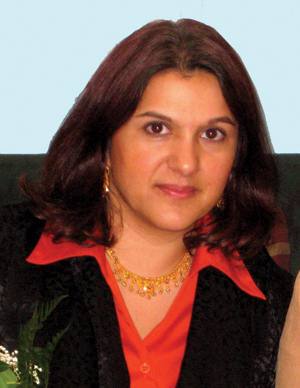
Indira Prahst
THIS week, several Sikh, Muslim and human rights organizations as well as scholars continued discussing, strategizing and organizing protests during Indian Prime Minister Narendra Modi’s visit to Vancouver on April 16. Modi is likely to be accompanied by Prime Minister Stephen Harper if the latter doesn’t back out in view of the protests and opts to send some senior minister like Jason Kenney to accompany Modi. Some of the groups that have united as “Communities United Against Narendra Modi” are organizing a protest at Vancouver’s Ross Street Gurdwara include Gurdwara Sahib Dasmesh Darbar, Gurdwara Sahib Baba Banda Singh Bahadur , Sikhs For Justice, North American Sikh Activist Network, Shiromani Akali Dal Amritsar (Mann) Canada, Trikone Vancouver, Coalition of South Asian Women Against Violence, Color Connected Against Racism UBC, Ghadar Party Celebrations Committee, Tarksheel Cultural Society of Canada, East Indian Defense Committee, Azaadi Canada, , Critical Muslims, Gurdwara Dashmesh Culture Centre, OnePanth, Siraat and Salaam Vancouver.
Narendra Modi [File Photo]
Based on the meetings I attended last week and discussions which continued this week, the protestors have a raft of grievances and allegations: bad treatment in general of minorities and violation of their rights; the unjust treatment by the state and the judicial system of political prisoners; genocide of Sikhs in 1984 and massacre of Muslims in Gujarat in 2002; doing away of land and property rights of Sikhs in Gujarat; the intensifying of Hindutva mobilization in India which is making the lives of minorities (Sikhs, Muslims, Christians and Dalits) more precarious; the adverse effects of global imperialism with Modi’s free trade agreements and nuclear deals and extraction of natural resources at the expense of the poor in the current climate of global capitalism. Also, some are advocating for self-determination demanded by various groups including Kashmiris and some Sikhs advocating their right for Khalistan (a Sikh homeland). This advocacy has often been perceived as illegal, and a threat to National security. According to the law in Canada and as stated by the Canadian Prime Minister in past speeches, peaceful advocacy for sovereignty is not illegal under the Charter of Rights and Freedoms. The current climate of fear mongering and production of public panic on these issues, is infringing on the rights of free expression of Sikh and Muslim bodies, and is an ethical issue as well, going against what Canada stands for under the 1982, Canadian Charter of rights and freedom’s, Section 7, 14- where “Everyone has the right to life, liberty, and security of the person, and the right not to be deprived thereof except in accordance with the principles of fundamental justice.”
While the media appears to be glorifying Modi with references to him being like a “rock star,” others are viewing Modi in rather negative terms because of the massacre of Muslims when he was Chief Minister of Gujarat and because of him having been an active member of the Rashtriya Swayamsevak Sangh (RSS). In fact back in 2006 when I interviewed multiple award winning journalist Dionne Bunsha for her book “Scarred: Experiments with violence in Gujarat, 2006”, she said: ”Some of my work has been used as evidence in court cases. For instance, I had dug up information that more than half the cases were closed by the police, citing lack of evidence, ignoring all the eyewitness reports. Some activists used that to file a case in the Supreme Court which ordered that the cases should be re-opened. So, for once, I felt that there was some concrete outcome.” Indeed, these voices and struggles echo those I heard when I met the Widows- survivors of 1984 Sikh Genocide In Tilak Vihar India, where Permjit Kaur who lost 25 members of her family including her husband, recounted the following to me: “we eat, work, sleep, nothing else. The people who died (in the Dehli Sikh genocide) were innocent. We can only remember them. That is our life. We wish that they (perpetrators) are punished, we demand that. We organize protests and rallies, but nothing, no results. There is no justice”.
Those who were condemning Modi before he became the Indian Prime Minister are now lauding him for economic considerations, the protestors say. On that note, Sunera Thobani, Associate Professor, Institute for Gender, Race, Sexuality and Social Justice, University of British Columbia had this to say: “I think it is really important for the South Asian community to speak out against human rights violations, whether these occur in India or in Canada. The rights of minorities cannot be traded away in favour of stronger trade links between the two countries.”
In closing, the protesters are committed to congregating publically knowing their rights under the Canadian Charter of rights and Freedom’s, Section 2 (a) freedom of religion, which also guarantees the freedom of conscience, Freedom of expression, (s. 2(b) freedom of thought, belief and under section 2(c) freedom of peaceful assembly. On April 16th, the protesters say they are exercising their right and are creating a space for silenced voices to be heard through the presence of their bodies. Time will tell how the protest unfolds.
* Author, Indira Prahst, is a VancouverCanada based sociologist.

